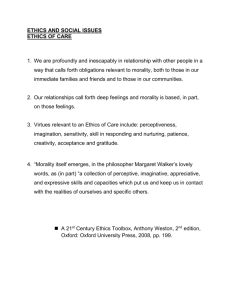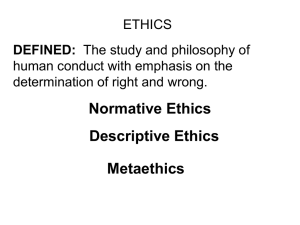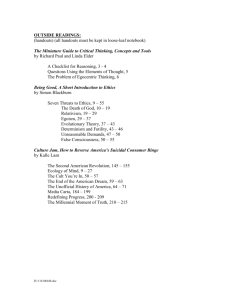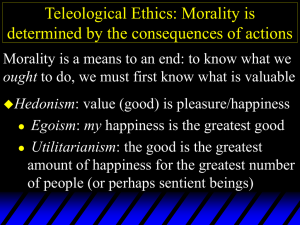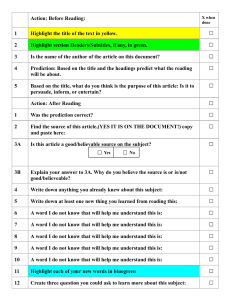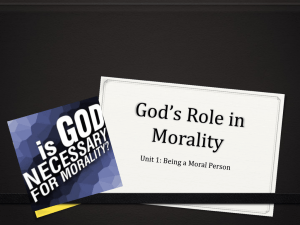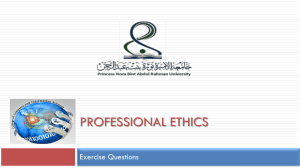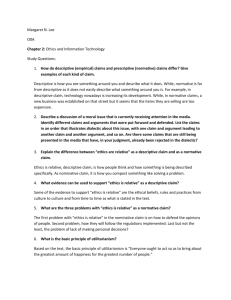Ethics Vocabulary Handout
advertisement
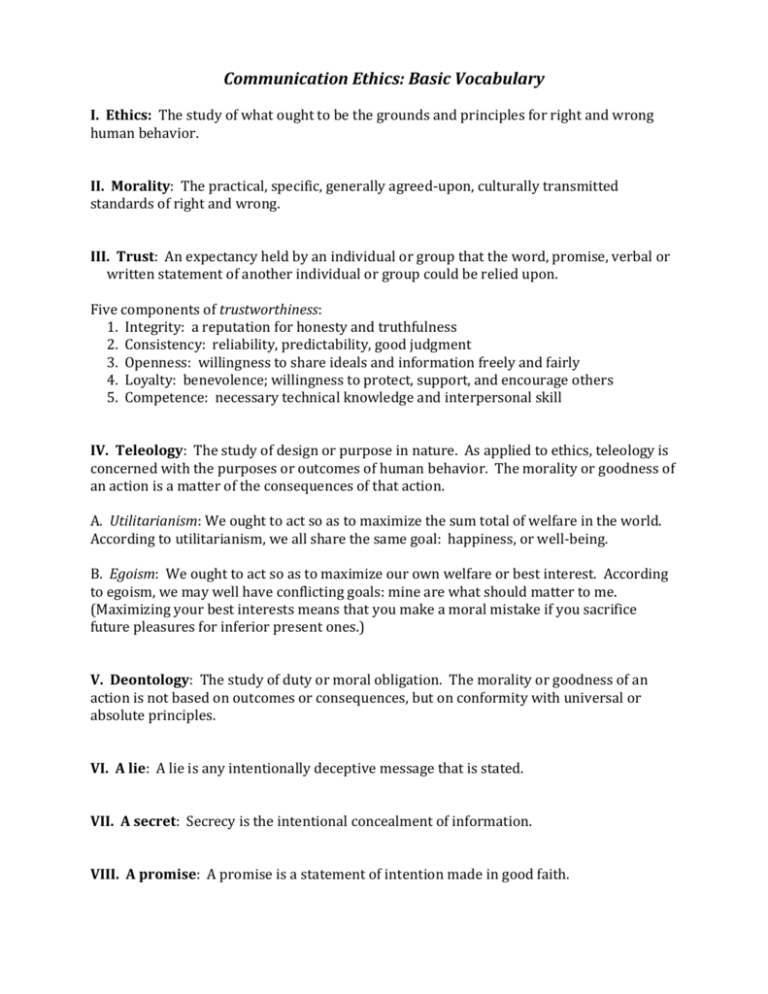
Communication Ethics: Basic Vocabulary I. Ethics: The study of what ought to be the grounds and principles for right and wrong human behavior. II. Morality: The practical, specific, generally agreed-upon, culturally transmitted standards of right and wrong. III. Trust: An expectancy held by an individual or group that the word, promise, verbal or written statement of another individual or group could be relied upon. Five components of trustworthiness: 1. Integrity: a reputation for honesty and truthfulness 2. Consistency: reliability, predictability, good judgment 3. Openness: willingness to share ideals and information freely and fairly 4. Loyalty: benevolence; willingness to protect, support, and encourage others 5. Competence: necessary technical knowledge and interpersonal skill IV. Teleology: The study of design or purpose in nature. As applied to ethics, teleology is concerned with the purposes or outcomes of human behavior. The morality or goodness of an action is a matter of the consequences of that action. A. Utilitarianism: We ought to act so as to maximize the sum total of welfare in the world. According to utilitarianism, we all share the same goal: happiness, or well-being. B. Egoism: We ought to act so as to maximize our own welfare or best interest. According to egoism, we may well have conflicting goals: mine are what should matter to me. (Maximizing your best interests means that you make a moral mistake if you sacrifice future pleasures for inferior present ones.) V. Deontology: The study of duty or moral obligation. The morality or goodness of an action is not based on outcomes or consequences, but on conformity with universal or absolute principles. VI. A lie: A lie is any intentionally deceptive message that is stated. VII. A secret: Secrecy is the intentional concealment of information. VIII. A promise: A promise is a statement of intention made in good faith.
